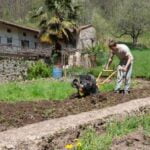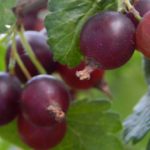Is using grey water on vegetable gardens a sustainable practice? Many gardeners are looking for ways to reduce water usage and environmental impact in their everyday gardening practices.
One potential solution is the use of grey water, which is wastewater from sources such as laundry, bathing, and dishwashing that can be recycled for use in gardens. In this article, we will explore the benefits and considerations of using grey water on vegetable gardens, as well as tips for designing and implementing a grey water system.
Using grey water on vegetable gardens can help conserve fresh water resources while providing essential moisture to plants. However, it’s important to understand the types of grey water that are suitable for use in gardens, as well as any regulations or guidelines that may apply. We will explore these considerations in detail to ensure the safe and effective use of grey water for gardening purposes.
Additionally, we will discuss success stories and case studies of vegetable gardens thriving with the use of grey water, providing real-life examples of how this sustainable practice can yield positive results. Whether you’re new to using grey water or looking to improve your existing system, this article will provide valuable insights into incorporating this environmentally friendly approach into your vegetable garden maintenance routine.
Benefits of Using Grey Water on Vegetable Gardens
Grey water, which is the wastewater generated from domestic activities such as laundry, dishwashing, and bathing, can be a valuable resource for watering vegetable gardens. There are several benefits to using grey water on vegetable gardens, including environmental sustainability and cost savings. By reusing grey water for irrigation, gardeners can reduce their reliance on freshwater sources and lower their water bills.
One of the key benefits of using grey water on vegetable gardens is that it provides a nutrient-rich source of water for plants. As grey water contains small amounts of soap, detergents, and food particles, it can actually benefit the soil by adding organic matter and nutrients. This can lead to healthier plants and higher yields in the garden.
Additionally, using grey water on vegetable gardens helps to minimize the strain on municipal water supplies. With increasing concerns about water scarcity in many regions, using grey water for irrigation can contribute to overall water conservation efforts. This is especially important for vegetable gardens, as they typically require regular watering to ensure healthy growth and abundant harvests.
Finally, another important benefit of using grey water on vegetable gardens is the reduction of wastewater sent to treatment facilities. By diverting grey water directly to the garden instead of sending it down the drain, gardeners can help alleviate the burden on municipal wastewater treatment systems. This environmentally friendly approach promotes sustainability and reduces the energy required for processing wastewater.
| Benefit | Description |
|---|---|
| Nutrient-rich source | Enhances soil with organic matter and nutrients |
| Water conservation | Reduces strain on freshwater sources |
| Wastewater reduction | Minimizes burden on municipal treatment facilities |
Types of Grey Water Suitable for Vegetable Gardens
Grey water, which is wastewater from sources such as sinks, showers, and laundry machines that can be reused for irrigation purposes, can be a great resource for watering vegetable gardens. However, not all types of grey water are suitable for use in vegetable gardens. It is important to understand which types of grey water are safe and beneficial for your plants.
1. Sink Water: Grey water from kitchen sinks can be an excellent source of nutrients for vegetable plants. However, it is important to avoid using water that contains high levels of fats, oils, or grease.
2. Showers and Baths: Using grey water from showers and baths can be a great way to conserve water and nourish your vegetable garden. However, it is crucial to avoid using soaps or shampoos that contain harmful chemicals or high levels of salt.
3. Laundry Water: The grey water produced from washing machines can also be used to irrigate vegetable gardens. It is essential to ensure that the detergent used is eco-friendly and does not contain any harmful substances that could harm your plants.
When considering the use of grey water on vegetable gardens, it is essential to understand the benefits and potential risks associated with each type of grey water. By selecting the appropriate types of grey water and following best practices for its use, you can effectively harness this valuable resource to promote healthy growth in your vegetable garden while conserving fresh water at the same time.
Regulations and Guidelines for Using Grey Water on Vegetable Gardens
When it comes to using grey water on your vegetable garden, it’s important to be aware of the regulations and guidelines in place to ensure the safety and effectiveness of this practice. Here are some key points to keep in mind:
- Check with your local municipality: Before implementing a grey water system for your vegetable garden, be sure to check with your local municipality for any regulations or restrictions in place. Some areas may have specific rules governing the use of grey water, so it’s important to stay informed.
- Use biodegradable products: When using grey water on vegetable gardens, it’s crucial to use biodegradable soaps and detergents. Harsh chemicals can harm both your plants and the surrounding environment, so opting for eco-friendly options is essential.
- Ensure proper treatment: Grey water should be properly treated before being used on vegetable gardens to remove any potential contaminants. This can be achieved through simple filtration systems or more advanced treatment methods, depending on the scale of your grey water system.
In addition to these guidelines, it’s also wise to consider the source of your grey water. Kitchen sink water may contain food particles and oils that can negatively impact soil composition over time, while shower or bath water tends to be a safer option for irrigation. By following these regulations and guidelines, you can effectively use grey water on your vegetable garden while promoting sustainable and eco-friendly practices.
Designing a Grey Water System for Vegetable Gardens
When designing a grey water system for your vegetable garden, it is important to consider several factors to ensure its effectiveness and safety. One of the first things to consider is the source of your grey water. Kitchen sink, laundry, and bathroom water can all be used for irrigating your vegetable garden, but it’s crucial to avoid using any water with harmful chemicals or toxins that could negatively affect your plants.
Another essential aspect of designing a grey water system for vegetable gardens is the infrastructure needed to capture, filter, and distribute the water. This may include installing a separate plumbing system that directs grey water from your home to a filtration system before being distributed to your garden. It’s important to ensure that the filtration system effectively removes any impurities or contaminants from the grey water before it reaches the vegetable garden.
Additionally, when designing a grey water system for vegetable gardens, it’s imperative to consider local regulations and guidelines regarding the use of grey water. Some areas may have specific requirements for how grey water should be treated and used, so it’s important to research and adhere to these regulations to ensure compliance and environmental safety.
Overall, with careful planning and consideration of these factors, designing a functional and safe grey water system for your vegetable garden can help conserve water and promote healthy plant growth.
| Factor | Consideration |
|---|---|
| Source of Grey Water | Kitchen sink, laundry, bathroom |
| Infrastructure Needed | Filtration system, separate plumbing |
| Regulations | Local guidelines compliance |
Tips for Safe and Effective Use of Grey Water on Vegetable Gardens
Filtering and Treating Grey Water
Before using grey water on your vegetable garden, it is essential to filter and treat the water to remove any harmful substances. This can be done through a simple filtering system or by using natural treatments such as UV light or chlorine. It is important to ensure that the grey water is free from chemicals, pathogens, and pollutants that could potentially harm your plants and the soil.
Timing and Application of Grey Water
One of the key tips for using grey water on vegetable gardens is to pay attention to the timing and application of the water. It is best to use grey water during the early morning or late evening to minimize evaporation and ensure that the plants can benefit from the moisture. Additionally, avoid applying grey water directly onto edible parts of the plants, such as fruits or leaves, to reduce the risk of contamination.
Monitoring Soil and Plant Health
Regularly monitor the health of your soil and plants when using grey water on your vegetable garden. Keep an eye out for any signs of salt buildup in the soil, which can occur if there is a high concentration of salts in the grey water.
Additionally, observe your plants for any signs of stress or damage, as this could indicate an issue with the quality or quantity of grey water being used. Adjusting your grey water usage based on these observations will help ensure safe and effective use on your vegetable garden.
Common Mistakes to Avoid When Using Grey Water on Vegetable Gardens
Improper Filtering and Treatment
One common mistake when using grey water on vegetable gardens is not properly filtering and treating the water before it is used. Grey water contains contaminants from household activities, such as soap, food particles, and chemicals, which can be harmful to plants if not removed. It is important to invest in a filtration system and use eco-friendly, non-toxic products in your household to minimize the presence of harmful substances in the grey water.
Overwatering
Another mistake to avoid when using grey water on vegetable gardens is overwatering. Using grey water can lead to an increase in water availability for your plants, but it’s important to monitor and adjust the amount of water used accordingly. Overwatering can lead to root rot, nutrient leaching, and other negative effects on plant health. It’s crucial to strike a balance between providing enough moisture for your vegetables without drowning them with excessive grey water.
Using Unsuitable Types of Grey Water
Not all types of grey water are suitable for vegetable gardens. For example, grey water from dishwashers or washing machines that contain high levels of grease or lint should be avoided for use on edible plants. Similarly, grey water containing high levels of salt from certain cleaning products should also be avoided. It’s important to understand which types of grey water are safe for use on vegetable gardens and to avoid using any that may harm your plants.
By being mindful of these common mistakes when using grey water on vegetable gardens, gardeners can ensure the safety and health of their plants while maximizing the benefits of sustainable watering practices.
Success Stories and Case Studies of Vegetable Gardens Thriving With the Use of Grey Water
Using grey water on vegetable gardens has shown to be highly beneficial for both the plants and the environment. Many gardeners have reported success stories and case studies of their vegetable gardens thriving with the use of grey water. This alternative water source not only helps reduce the demand on freshwater resources but also provides essential nutrients to the plants.
One success story comes from a family in a dry climate region who implemented a grey water system for their vegetable garden. Despite limited access to freshwater for irrigation, they were able to maintain a lush and productive garden by utilizing grey water from their household activities. Their vegetables flourished, and they were able to harvest a variety of crops throughout the year, demonstrating how effective grey water can be in sustaining a healthy garden.
Another case study involves a community garden that incorporated a grey water system into their sustainable gardening practices. By collecting and treating grey water from nearby buildings, they were able to support an abundant vegetable garden that provided fresh produce for residents of the community. This initiative not only reduced the strain on local water sources but also promoted food security and self-sufficiency within the neighborhood.
These success stories and case studies serve as inspiring examples of how the use of grey water can contribute to flourishing vegetable gardens. They highlight the potential for sustainable gardening practices that benefit both plant growth and environmental conservation. By sharing these experiences, more individuals and communities can be encouraged to explore the implementation of grey water systems in their own vegetable gardens.
Conclusion and Next Steps for Implementing Grey Water on Your Vegetable Garden
In conclusion, using grey water on vegetable gardens can be a sustainable and cost-effective way to nourish your plants while conserving freshwater resources. With the right knowledge and precautions, homeowners can successfully implement grey water systems to benefit their gardens. By reusing household water from sources like laundry, showers, and dishwashing, you can create a closed-loop system that reduces waste and promotes a healthier environment.
Moving forward, it’s essential to consider the regulations and guidelines for using grey water on vegetable gardens in your area. Understanding the types of grey water suitable for garden use and designing a safe and efficient system are crucial steps in ensuring success. Additionally, avoiding common mistakes such as using untreated grey water or over-irrigation is important for the health of both your garden and the environment.
As more individuals and communities embrace sustainable living practices, success stories and case studies of vegetable gardens thriving with the use of grey water continue to emerge. These examples serve as inspiration for those interested in implementing their own grey water systems. By taking the next steps towards incorporating grey water into your gardening routine, you can contribute to a greener future while enjoying bountiful harvests from your vegetable garden.
Frequently Asked Questions
Is It OK to Drain GREY Water on the Ground?
It is generally not recommended to drain grey water, which includes water from sinks, showers, and laundry, directly onto the ground. This is because grey water may contain harmful chemicals or bacteria that can contaminate the soil and groundwater.
Which Plants Like Grey Water?
Some plants that tolerate or even benefit from grey water irrigation include fruit trees, ornamental grasses, and certain types of shrubs. These plants are typically able to handle the small amounts of soaps and contaminants present in grey water without negative effects on their growth.
Does Soap in GREY Water Harm Plants?
The soap present in grey water can potentially harm plants if it contains harsh chemicals or a high concentration of salt. However, biodegradable soaps with minimal chemical additives are less likely to cause harm to garden plants when used for irrigation.
Maintaining a balance and using eco-friendly products can minimize any potential negative effects on plants when using grey water for irrigation.

If you’re looking to get into vegetable gardening, or are just looking for some tips on how to make your current garden better, then you’ve come to the right place! My name is Ethel and I have been gardening for years. In this blog, I’m going to share with you some of my best tips on how to create a successful vegetable garden.





